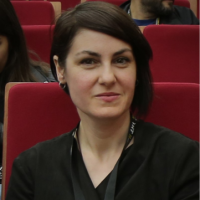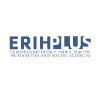Research Article
Dissertation
Aim & Scope
Turkish Review of Communication Studies (TURCOM), which was initiated in 1992 as "Marmara Journal of Communication", aims to publish top-quality national and international research in the field of media and communication studies. Since its foundation, the journal has been administrated by the editorial board members from the Marmara University Faculty of Communication. In our journal, we aim to benefit from and reflect on the multidisciplinarity of our faculty, with sub-disciplines including Public Relations, Advertising, Journalism, Digital Media, Television, and Film Studies. TURCOM aims to facilitate an international platform for scholars to analyze media and communication with distinct perspectives.
TURCOM publishes articles, commentaries, and book reviews to initiate a multidisciplinary ground within media and communication studies. We welcome authors to submit articles that would cover one or several sub-fields located under media, communication, and cultural studies in diverse subjects, research problems, and methodologies. We are particularly interested in problematizing and questioning contemporary developments in the media in Turkey and across the globe and encourage the authors to contribute by cross-cultural perspectives. TURCOM is published biannually in June and December and indexed by Emerging Sources Citation Index (ESCI), EBSCOhost, DOAJ, TRDizin, and Ulrichsweb. Articles submitted to the journal go through the process of anonymous double-blind peer review. No fees are required to submit articles.
Author Guidelines
Style and Formatting
The articles submitted to the journal should follow proper academic language and maintain a clear and consistent theoretical and methodological agenda, which should be systematically stated in the paper.
All articles should have a title, abstract, keywords, introductory section, conceptual/theoretical discussion, methodology, analysis/discussion, conclusion, acknowledgments and bibliography.
If the article is a thesis or a conference presentation prior to its submission to TURCOM, it should be stated in the acknowledgments.
The authors are welcome to submit articles based on their theses as long as they are properly converted into an article format. These articles will be reviewed as usual and revisions could be requested as the result of the referee and/or editorial assessment. If the necessary revisions are not submitted, the articles will be returned to the author.
The articles should be written and submitted in a Microsoft Word document, font type should be set as Times New Roman, size 12 and 1.5 space.
The in-text citations and references should be formatted by Endnote or Microsoft Word Reference Tools according to APA 6.
The word limit for the articles is 8000, including abstract, bibliography, figure/table captions, and footnotes.
The word limit for commentaries and book reviews is 3000 words including footnotes and bibliography.
The articles should include abstracts between 150 to 200 words and 5 keywords.
The authors’ affiliations, postal addresses, email addresses, ORCID numbers should be provided with a footnote on the first page of the article below the title.
Articles should be uploaded via the journal’s submission system at https://dergipark.org.tr/tr/pub/turcom through the “submit article” button.
During their submission, the authors are asked to upload an "Author Agreement Form" including a conflict of interest and disclosure statement.
For inquiries and questions, the authors can contact the journal at iletisimdergi@marmara.edu.tr
Editorial Assessment and Peer Review
The articles submitted at TURCOM should be original and should not be submitted to any other journal.
Papers presented in conferences can be submitted to TURCOM as long as they are written I the form of an article and acknowledged as a conference paper in the footnotes.
Submitted articles go through an initial process of editorial assessment. Articles that do not comply with the publication rules and fail to contribute to the journal's quality publication ambitions will be returned to the author(s) without initiating the peer review process.
During the assessment process, an anonymous double peer review process is conducted by the editorial team. Referees, who are experts in their fields regarding the article, are invited appointed to provide quality feedback to the authors. The articles are initially sent to two reviewers. If one of the reviews states, “reject”, and the other is either “accept”, “minor revision”, or “major revision”, the article is sent to the third reviewer. As a result of the reviews, the editor makes a final assessment and makes a decision about the article.
Upon the revision decisions, the authors are expected to revise their work and submit it according to a deadline stated by the editor.
It is the Editor’s authority and responsibility to make the final decision regarding the publication of articles as the result of the peer-review process.
Ethical Guidelines
The authors should make sure that their articles do not include any unethical and unlawful materials, discrimination, and hate speech. Authors are entitled to the legal responsibility of the article content.
The authors do not pay fees for the submission and the publication of their articles. The copyrights of the articles published belong to TURCOM and the authors are not paid for their articles.
The authors approve that the articles can take place at a noncommercial electronic database for the sake of sharing knowledge in the domestic and international sphere, therefore, Marmara Communication Journal can publish the item with full text as General Public License.
Formatting Bibliography
In Text-Citations:
The authors should follow the guidelines of APA (6th Edition) in referencing and in-text citations.
Explanations and further remarks should be provided in footnotes and numbered appropriately.
Use double quotation marks in inserting quotations. If quotations are longer than 40 words, they should be provided in a distinct paragraph without quotation marks.
Citations in the main text by indicating author’s name, publication date and page number within parenthesis. (Surname, Publication Year, p. Page Number).
(Foucault, 1977, p. 25)
If the author’s name is provided in the sentence, the reference should be inserted at the end of the sentence as (1977, p 25).
For multiple authors: (Horkheimer & Adorno, 1972, p. 122); further citations in the text should be given as (Horkheimer et al., 1972, p. 122).
For consecutive pages: (Foucault, 1977, pp. 25-26)
If multiple publications with the same author and same publication year will be referenced, these publications should be differentiated by adding a, b, c, etc. to the publication year: (Foucault, 1977a; 1977b).
If multiple references will be made for the same subject, resources should be separated by a semicolon: (Foucault, 1977, pp. 25-26; Mitchell, 2007, p. 90)
References:
References should be inserted at the end of the article in alphabetical order.
Books
Foucault, M. (1977). Discipline and Punish. London: Penguin Books.
Horkheimer, M. & Adorno, T. W. (1972). Dialectic of Enlightenment. New York: Herder and Herder.
Journal Articles
Mitchell, J. P. (2007). A fourth critique of the enlightenment: Michel de Certeau and the ethnography of subjectivity. Social Anthropology, 15(1), 89-106.
Translated Books
Laplace, P. S. (1951). A philosophical essay on probabilities (F. W. Truscott & F. L. Emory, Trans.). New York, NY: Dover. (Original work published 1814).
Edited Books
Jensen, K. B. (2002). (Ed.). A handbook of media and communication research: Qualitative and quantitative methodologies. London: Routledge.
Articles in Edited Books
O'Neil, J. M., & Egan, J. (1992). Men's and women's gender role journeys: A metaphor for healing, transition, and transformation. In B. R. Wainrib (Ed.), Gender issues across the life cycle (pp. 107-123). New York, NY: Springer.
Unpublished Dissertation
Demir, M. (2008). Sinemada ‘öteki’. Unpublished Ph.D. Thesis. İstanbul: Marmara University Institute of Social Sciences.
Newspaper Article
Internet pioneer to oversee network redesign. (2007, 28 Mayıs). The Canberra Times, p. 15.
Electronic Sources
Bernstein, M. (2002). 10 tips on writing the living web. A List Apart: For People Who Make Websites, 149. Retrieved from https://www.alistapart.com/articles/writeliving
Spotlight Resources. (n.d.). Retrieved from https://owl.purdue.edu/owl/about_the_owl/owl_information/spotlight_resources.html
Please refer to Purdue Online Writing Lab for APA 6th edition guidelines.
Ethical Principles and Publication Policy
Publication Ethics and Publication Malpractice Statement
Turkish Review of Communication Studies is committed to maintain the highest standards of publication ethics and to meet and uphold the following principles of the Core Practices prepared in accordance with the guidelines and policies developed by the Committee on Publication Ethics (COPE) for journal editors.
· Submitted manuscripts should not have been previously published, or scheduled and/or evaluated to be published in another journal.
· Turkish Review of Communication Studies adheres to the standards of COPE for publication ethics. Therefore, in cases of misconduct or violation of publication ethics, the journal will take the publication ethics flowcharts developed by COPE (https://publicationethics.org/resources/flowcharts) as a reference.
· In accordance with the double-blind peer review process, the Turkish Review of Communication Studies preserves the anonymity of authors and reviewers when submitted articles are sent for review.
· It is the journal’s responsibility to maintain the confidentiality of any information regarding authors. However, such information may be shared in a possible inquiry in order to investigate any allegations of misconduct. Turkish Review of Communication Studies defines its principles regarding any allegations of misconduct in accordance with the guidelines prepared by the COPE and shares these principles with the stakeholders on its website.
· Text recycling, which is using the chapters of a single text in various publications of the same author without any reference, is unacceptable for the Turkish Review of Communication Studies. In such cases, the journal acts according to the relevant guidelines determined by the COPE.
· Turkish Review of Communication Studies protects and supports freedom of expression under all circumstances. Moreover, the journal considers any racist, sexist or discriminatory content as hate speech and uses its right to refuse such content without sending them for review.
· In case of a conflict of interest regarding an article, the journal openly supports intellectual and ethical standards; and defines relevant ethical principles that authors, reviewers, the editor, assistant editors and theme editors should adhere to.
· In case of a conflict of interest regarding an article, the journal suspends the peer review process until the ambiguity is clarified; and it has the authority to request the Ethics Board Waiver Form, Interview Consent Form, and other documents that need to be submitted from authors regarding their articles.
· Turkish Review of Communication Studies is sensitive and responsible for publishing edited contents, commentaries, apologies, and refutations.
· The Editor and publishers of the journal are obliged to follow legal advice in case that repetitions in an article, that is coinciding texts in two different publications, violate any intellectual property rights.
Copyright Regulation and the Conflict of Interest Principle
Turkish Review of Communication Studies is an open-access journal which means that all content is freely available without charge to the user or his/her institution. Except for commercial purposes, users are allowed to read, download, copy, print, search, or link to the full texts of the articles in this journal without asking prior permission from the publisher or the author.
· The articles in Turkish Review of Communication Studies are open access articles licensed under the terms of the Creative Commons Attribution-NonCommercial 4.0 International (CC BY-NC 4.0) license (https://creativecommons.org/licenses/by-nc/4.0/deed.en)
Principles for Handling Allegations of Misconduct
Turkish Review of Communication Studies adopts COPE’s guidelines regarding “allegations of misconduct” in cases of misconduct and violation. Hence, the journal defines in detail the liabilities of the publisher, editor, reviewers, the Scientific Board, and authors prior, during, and after the publication process in the Publication Ethics.
· In cases when an article is submitted to various publishers, comparing different versions of a single work submitted to various journals and explanations of authors and enquirers regarding the work in question enables to cooperate and make an effort in cases of suspected misconduct and violation and to act accordingly together with enquirers/authors and/or their institutions.
· Having regard to the significance of confidentiality in the scientific publication process, the Turkish Review of Communication Studies shares information regarding authors and reviewers only in order to prevent suspected misconducts and to fulfill the obligation to handle such cases.
· Journal editor and theme editors have to make the first inquiries in suspected cases before sharing such information. Thus, sharing information is only at stake when the author does not respond, provides an insufficient explanation or the said allegation of misconduct might affect more than one journal.
· If required, such information is only shared with the editor who is believed to have knowledge of the subject in question, and the shared information is limited with factual content only.
· The Editor and theme editors guarantee to protect the confidentiality of communication to the greatest extent possible.
Publisher
· The official publisher Turkish Review of Communication Studies is the Dean of the Marmara University Faculty of Communication.
· The publisher guarantees that the stakeholders maintain the publication ethics principles, that access to the journal’s contents is uninterrupted and free of charge, and that the publications are archived and protected.
· The publisher is obliged to take the necessary actions to clarify any suspected violations of publication ethics such as misconduct, plagiarism, conflict of interest and text recycling.
Scientific Board
· The Scientific Board of Turkish Review of Communication Studies meets at least biannually.
· Members of the Scientific Board accept the publication ethics principles and policies and evaluate decisions regarding these principles and policies.
· They determine themes and relevant editors for each theme.
· They recommend members for the Scientific Board.
· They make proposals in order to improve the national and international recognition of the journal.
· Members of the Scientific Board have to inform editors of the journal to clarify any suspected violations of publication ethics such as misconduct, plagiarism, conflict of interest, copyright infringement, and text recycling.
· They make recommendations of citation indexes in which the journal might be included in order to improve its academic quality.
Editor and Assistant Editors
· Submitted articles are evaluated regardless of authors’ race, ethnicity, gender, worldview, and beliefs by the editor.
· The Editor makes comprehensive and constructive evaluations of submitted articles.
· The journal includes writings that do not require a peer-review process such as essays and activity reviews. The difference between reviewed publications and publications that do not require a peer review process is distinctly made clear. If required, the editor might make comments and suggestions as to under which category submitted articles should be published, and share them clearly with authors. In such cases, the authors and/or the editor make the final decision.
· The Editor is responsible for making contact between authors and reviewers during the peer-review process. They conduct the process by documenting the whole process meticulously from the date of submission to the date of publication with academic courtesy. If need be, the editor feels free to give an account of the whole peer review process for each article (provided that they look after the personal rights of authors and reviewers and the journal’s principles of confidentiality).
· In case that two reviewers present different opinions on an article, the editor has to seek the opinion of a third reviewer.
· The editor should withdraw themselves from their editorial task if they are in conflicts of interest or in relationships that could lead to a conflict of interest regarding articles. Assistant editors who will continue as editorial staff shall report on the current status of the financial interests or other disputes (which may affect the editorial process) and withdraw themselves from the editorial staff in case of any conflict of interest. The editorial staff should not use any of the information obtained from the reviewed article for personal interest.
· If the Editor finds errors in a published article, and if this error invalidates the work or its important sections, it’s non-ethical, it contains plagiarism, they withdraw it. In this case, the Editor is responsible for providing a statement that clearly indicates the withdrawal of the article and an explanation of the reason for the withdrawal, besides, by providing a link that connects two versions, grants access to all readers on online platforms.
Authors
· Authors have academic, ethical, and social responsibilities.
· Authors cannot submit more than one article for the same issue of the journal.
· Article submission dates are indicated in the call for papers for the upcoming issue. Submissions made after the deadline will not be evaluated.
· Responsibility for ethical violations such as plagiarism, improper citation, missing a citation, not mentioning the names of grants, and supporting institutions rests with the author. In such cases, articles are refused.
· Authors should state the resources of the work/research support they get in their articles.
· Authors are responsible for revealing any financial and personal relationships which may cause bias regarding their work when they submit a work in any kind or format. In this context, authors have to sign the Copyright Transfer and the Conflict of Interest Forms and upload them on the system during the submission process.
· Authors are responsible for the fact that the ideas and expressions of the manuscript they submit for publication have not been used in their previously published works. If these ideas and expressions have already been used, they should be indicated by references in necessary places. Otherwise, the authors are obligated to correct overlapping parts upon the editor’s request or to do their part for publication of a correction if the article has been published.
· Authors undertake that, submitted manuscripts to Turkish Review of Communication Studies have not been previously published, or scheduled and/or evaluated to be published in another journal.
· Authors should be able to render an account of validity and ethics for each part of the work.
· If there are multiple authors who contribute to the work, the name order of these authors which has been sent during the submission process should be co-decision of the authors.
· The responsibilities to include only those who have active contributions in the work as authors, not to include non-active contributors among the authors, to sequence the authors, and to provide appropriate justification for any changes in the author sequence while the evaluation process is in progress, rest with the author. The author should be able to provide an explanation regarding all these matters if it is deemed necessary by the journal editor.
· If the authors find errors and mistakes after the publication of their work, they should immediately notify the editor of the journal so that appropriate action can be taken.
· Authors cannot publish the same article or part of it in multiple journals without providing an appropriate reason, without permission or cross-reference. Authors are obligated to comply with the license and copyright transfer agreement they have signed.
Reviewers
· They adopt a double-blind peer-review process and fulfill the requirements of it.
· When a peer review has been requested, they should respond positively or negatively within a reasonable time period.
· They should reveal if they do not have expertise on the subject regarding the work, or if they are able to evaluate only a part of the work.
· They should accept carrying out the evaluation within a mutually agreed time period and they should inform in case of delay.
· Reviewers should reveal to the editor any conflict of interest which may cause bias in their reviews regarding the article, and they should refrain from reviewing the article in such cases.
· Reviewers are responsible for informing the editor when they identify text recycling in a submitted article.
· Reviewers should not use any information within the article which is about their field of interest before the reviewed article is published.
· If they think that they cannot make a fair and unbiased assessment, they should report it.
· They should refuse to review a manuscript if it is very similar to their work which they have been preparing or in the evaluation process.
· During Review;
o They should inform the journal if they notice a conflict of interest arise, which was non-existent when they accepted peer-reviewing.
o They should keep all the writings and peer reviews confidential.
o They should ensure that their evaluations are only scientific; they will not be affected positively or negatively due to personal, financial or intellectual bias.
o They should not make personal comments or unjustified accusations against the author.
o They should be specific in their critics; for example, they should concretize a general statement such as “a previous study”, this will help the editor to act fairly to the authors in the evaluation and decision-making process.
o They should remember it is the author’s work and if the manuscript is written clearly, they should not attempt to rewrite it in the way they choose; but recommendations of clarification of expressions are important.
o They shouldn’t contact authors directly, without informing the journal.
o They should recognize the sensitivities that may arise out of writing in another language and express it in a respectful and appropriate manner.
o They should not recommend referencing works just to be visible or increase the number of referrals of themselves or their colleagues. If a recommendation is made, it should be justified scientifically.
· After Review;
o They should maintain keeping the work and the evaluation process confidential.
o In case a situation arises which may affect their comments and feedback, they should notify the journal.
o They should try to respond to requests from the journal for revision and reassessment.
Guest Editors
· Theme editors of the Turkish Review of Communication Studies acknowledge the scientific publication ethics of the journal and fulfill their responsibilities accordingly.
· Theme editors undertake the responsibilities of publication ethics which are described for the editor of the journal, from calls for papers for the issue they prepare until the publication of that issue.
· The theme editors are obligated to respond to the questions addressed by the journal and share the required documents if necessary under the code of ethics after the publication of the issue they are responsible for.
· Persons are also committed to fulfilling the responsibilities listed above when they accept the theme editorship proposal of the Turkish Review of Communication Studies.
For ethical problems other than the circumstances which have been mentioned above, the guidelines on publication ethics of COPE (The Committee on Publication Ethics) will be taken as a reference. Turkish Review of Communication Studies has been a member of COPE since May 2019.
The policy of Screening for Plagiarism
Ethical violations such as plagiarism are unacceptable by the Turkish Review of Communication Studies and it is the primary author's (s)’s responsibility to ensure that submitted articles do not contain such violations.
All submitted articles are examined via Turnitin, and a similarity report is received prior to the peer-review process.
If the similarity rate is 20% or more, editors share the results of the report with the author and reject the article without sending them for review.
Price Policy
No fees are required to submit articles.
Indexes
Citation Indexes
Other Indexes
Journal Boards
Editor

Alparslan Nas completed his undergraduate and graduate studies in Cultural Studies at Sabancı University, followed by a doctorate from Marmara University Faculty of Communication, Department of Advertising, where he began his career as a research assistant. He was promoted to associate professor in 2018 and full professor in 2025. Prof. Nas is the author of numerous international publications, including the book Media Representations of the Cultural Other in Turkey (Palgrave Macmillan, 2018) and articles in prestigious peer-reviewed journals such as the European Journal of Cultural Studies, Feminist Media Studies, and the International Journal of Communication. Since 2020, he has served as the editor of the Turkish Review of Communication Studies. At Marmara University Faculty of Communication, he teaches courses including Introduction to Communication, Communication Theories, Sociology of Communication, Brand Communication, and Philosophy of Advertising. His primary research interests encompass critical studies of advertising and branding, gender and advertising, and topics in Turkish cultural studies.
Editor
Mustafa Ali Minarlı, Kocaeli Üniversitesi Siyaset ve Sosyal Bilimler Programında “Çokkültürlü Yurttaşlık Bağlamında Türkiye'de Mikro Dinsel Cemaatlerin Kimlik Problemi” başlıklı teziyle yüksek lisans öğrenimini tamamladı. Marmara Üniversitesi Radyo, Televizyon ve Sinema Anabilim Dalı, İletişim Bilimleri Bilim Dalı’nda “İletişimsel Bir Ortam Olarak Sosyal Medya Ve Demokrasi” başlıklı teziyle doktora derecesini aldı.
Kamusal alan, demokrasi, sosyal medya, militarizm konularıyla ilgilenmektedir. Halen Marmara Üniversitesi İletişim Fakültesinde öğretim üyesidir.
Assistant Editors

2015 yılında Anadolu Üniversitesi Halkla İlişkiler ve Reklamcılık Bölümü’nden lisans derecesiyle mezun oldu. Aynı üniversitede Sanat Tarihi Bölümü’nde yan dal yaptı. Yüksek lisans derecesini 2019 yılında Marmara Üniversitesi Reklamcılık ve Tanıtım Bilim Dalı'nda tamamladı. Halen Marmara Üniversitesi Reklamcılık ve Tanıtım Bilim Dalı'nda doktora eğitimine devam etmekte olup aynı üniversitede araştırma görevlisi olarak görevini sürdürmektedir.

Section Editors




 Web
Web



2001 yılında İstanbul Üniversitesi İletişim Fakültesi Halkla İlişkiler ve Tanıtım Bölümü'nden mezun olmuştur. Yüksek lisans eğitimini 2008 yılında Marmara Üniversitesi Sosyal Bilimler Enstitüsü Halkla İlişkiler Bilim Dalı'nda "yeni iletişim ortamı olarak kurumsal iletişimde kurumsal bloglar", konusunda hazırladığı tezle, doktora eğitimini ise 2014 yılında yine Marmara Üniversitesi Sosyal Bilimler Enstitüsü Halkla İlişkiler Bilim Dalı'nda "halkla ilişkilerde hipergerçeklik ve sosyal medya" konulu tezi ile tamamlamıştır. 2007 yılında Marmara Üniversitesi İletişim Fakültesi Halkla İlişkiler ve Tanıtım Bölümü'nde araştırma görevlisi olarak başladığı akademik çalışmalarını, Ağustos 2021 tarihinden itibaren Halkla İlişkiler doçenti statüsünde devam ettirmektedir. Çalışma alanları, iletişim etiği, sosyal sorumluluk ve dijital halkla ilişkiler konularını içermektedir.

Bilge Şenyüz is an academic in the field of communication studies. She has been working at Marmara University/Faculty of Communication in Turkey since 2023—first as an Associate Professor, and as a Full Professor since December 2025. She has received both her Ph.D. and M.A. degrees in journalism from Ankara University in Turkey. She also finished her second master’s program at Middle East Technical University/Science and Technology Policy Studies. She worked as a research assistant at Gazi University from 2012 to 2018 and as an associate prof. at Ankara Hacı Bayram Veli University from 2018-2023. Before that, she was a "press analysis specialist" for the Turkish General Staff. Most recently, she worked in the USA as a postdoctoral researcher (from March 2017 to March 2018). Her current research interests include new media studies, research methods, user experience (UX), deceptive design patterns (dark patterns), generative artificial intelligence, algorithmic literacy, algorithmic (robot) journalism, data visualization, media ethics, and gender.
Marmara Üniversitesi İletişim Fakültesi’nde öğretim üyesi. İstanbul Üniversitesi’nde Sosyal Antropoloji okudu (1993). Basın sektöründe bir süre editör ve yayın yönetmeni olarak çalıştı. Marmara Üniversitesi’nde İletişim Bilimleri Anabilim Dalı’nda yüksek lisans (1998) ve doktora (2007) yaptı. Varlık, Evrensel Kültür, Hürriyet Gösteri, Defter, Milliyet Sanat dergilerinde, Radikal, Cumhuriyet, T24 ve Gazete Duvar’da sanat, politika ve kültür sosyolojisi ile toplumsal kuram üzerine yazılar yazdı. Popüler Gerilim (2004), Nâzım Hikmet ve Memleket: Kalabalığın İçinde Kalabalıkla Beraber (2011, Bir Ulu Irmak adıyla 2021), Bilebilmenin Mutluluğu (2012 ve 2018) ve Militan İyimserlik (2021) kitaplarının yazarı.







 Web
Web
Samsun’da dünyaya gelmiştir. 2011 yılında Ege Üniversitesi, İletişim Fakültesi, Gazetecilik Bölümü’nden mezun olmuştur. 2016 yılında Marmara Üniversitesi, Sosyal Bilimler Enstitüsü, Halkla İlişkiler Tezli Yüksek Programı’ndan “ Kent Kültürü Özelinde Alışveriş Merkezleri ve Tüketim Toplumu İlişkisi” başlıklı teziyle uzmanlık derecesi almıştır. Aynı yıl kazanmış olduğu Marmara Üniversitesi, Sosyal Bilimler Enstitüsü, Reklamcılık ve Tanıtım Doktora Programı’na kayıt olmuş, 2023 yılında ise söz konusu doktora programından "Bir Tüketim Nesnesi Olarak Mutluluk: Mutluluğun Reklamlarda Kullanılması Üzerine Bir Araştırma" adlı tez çalışmasıyla doktor unvanı almaya hak kazanmıştır. 2013-2023 yılları arasında Marmara Üniversitesi, İletişim Fakültesi, Halkla İlişkiler ve Tanıtım Bölümü’nde Araştırma Görevlisi olarak çalışan Varol, 2023 Ekim- 2025 Haziran tarihleri arasında Niğde Ömer Halisdemir Üniversitesi İletişim Fakültesi Halkla İlişkiler ve Reklamcılık bölümünde görev yapmıştır. Varol halihazırda Marmara Üniversitesi İletişim Fakültesi Halkla İlişkiler ve Tanıtım Bölümü, Reklamcılık ve Tanıtım Anabilim Dalı'nda doktor öğretim üyesi olarak görev yapmaktadır. “Tüketim Kültürü”, “Tüketici Davranışları”, “Reklamcılık” gibi konularda çalışmalarına devam etmektedir.

Fatma Doğan Akkaya, temel olarak iletişim sosyolojisi, göç çalışmaları ve dijital dönüşüm gibi konularda bilimsel incelemeler gerçekleştirmektedir. Lisans eğitimini Marmara Üniversitesi'nde tamamladıktan sonra, Yüksek Lisans derecesini City, University of London'dan (Medya ve İletişim) ve Doktora derecesini University of Essex'te (Sosyoloji) almıştır. Araştırmalarında, disiplinler arası perspektifle, ulusötesi göçün göçmen topluluklar ve sosyal yapılar üzerindeki etkilerine odaklanarak iletişim bilimleri ve sosyoloji kesişimindeki tartışmalara katkıda bulunmaktadır. Aynı zamanda, dijital dönüşümün toplumsal düzeyde sebep olduğu değişim ve dönüşümleri ve yeni medya araçlarının rolünü inceleyen çalışmalar yürütmektedir.
Language Editor (English)

Language Editor (Turkish)

Danışma Kurulu
Prof. Dr. Billur Ülger (Yeditepe Üniversitesi)
Prof. Dr. Müge Elden (Ege Üniversitesi)


Prof. Dr. Özhan Tingoy, iletişim teorisi, bilişim etiği, yönetim bilişim sistemleri ve bilişim suçları alanlarında çalışan bir akademisyendir. Marmara Üniversitesi İletişim Fakültesi'nde görev yapmakta olup, çeşitli idari pozisyonlarda bulunmuştur. Akademik kariyeri boyunca bilişim ve iletişim alanlarında araştırmalar yapmış, kitaplar ve makaleler yayımlamıştır. Strathclyde Üniversitesi gibi kurumlarda ziyaretçi profesör olarak görev almış, akademik dernek ve projelerde yer almıştır.


https://akademik.yok.gov.tr/AkademikArama/view/viewAuthor.jsp



Prof. Dr. Nazife Güngör, Ankara Üniversitesi Basın Yayın Yüksekokulu mezunu. Yüksek lisans ve doktora çalışmalarını Ankara Üniversitesi Sosyal Bilimler Enstitüsü’nde tamamladı. Akademik yaşama 1991 yılında Gazi Üniversitesi İletişim Fakültesi’nde araştırma görevlisi olarak başladı. 2000-2001 eğitim-öğretim yılında İngiltere’de Manchester Üniversitesi’nde konuk akademisyen olarak bulundu. 2004-2008 yılları arasında Gazi Üniversitesi Rektörlüğü’nde basın ve halkla İlişkiler danışmanlığı görevinde bulundu. 2007-2010 yılları arasında İletişim Fakültesi’nde gazetecilik bölüm başkanlığı görevini de üstlenen Güngör 2011 yılında Gazi Üniversitesinden emekli olarak İstanbul Arel Üniversitesine dekanlık göreviyle geçiş yaptı. Prof. Dr. Nazife Güngör hala Üsküdar Üniversitesi İletişim Fakültesi öğretim üyesi ve dekanı olarak görev yapmaktadır. Güngör’ün Popüler Kültür ve İktidar (Vadi, 1999), Arabesk (Bilgi Yayınları, 1993), Abdülcanbaz (Cumhuriyet Kitapları, 2008), Cumhuriyet Döneminden Günümüze Dil, Kültür, Eğitim (Gazi Üniversitesi, 2006), Atatürkçü Düşüncenin Bilimsel ve Felsefi Temelleri (Gazi Üniversitesi, 2006), Çocuk ve Toplum (Çeviri, Gündoğan, 1995), Medya, İletişim, Kültür (Çeviri, Vadi, 2001), Gazi Üniversitesi Öğrenci Profili (Gazi Üniversitesi, 2007), Cumhuriyet Döneminde İletişim (Siyasal Kitabevi, 2010), İletişime Giriş, (Siyasal Kitabevi, birinci basım, 2011, ikinci basım 2012, üçüncü basım 2015, dördüncü basım 2017, beşinci basım 2018, altıncı basım, 2020); İletişim Kuramlar-Yaklaşımlar (Siyasal Kitabevi, (birinci basım 2011, ikinci basım 2013, üçüncü basım 2016, dördüncü basım 2018, beşinci basım, 2020) adlı telif, derleme ve çeviri kitapları, yanı sıra da çeşitli bildiri ve makaleleri bulunmaktadır.



Yayın Kurulu
Prof. Dr. John Keane (The University of Sydney)
Prof. Dr. Ebru Özgen (Marmara University)
Prof. Dr. Necmi Emel Dilmen (Marmara University)
Prof. Dr. Mehmet Özçağlayan (Marmara University)
Prof. Dr. K. Nazlım Tüzel Uraltaş (Marmara University)
Prof. Dr. Serpil Kırel (Marmara University)
Prof. Dr. Filiz Balta Peltekoğlu (Marmara University)
Prof. Dr. Cem Sefa Sütçü (Marmara University)
Doç. Dr. Alparslan Nas (Marmara University)

He was born in Kırşehir. After graduating from Kabataş High School, he graduated from Marmara University, Department of Economics in 1990. He completed his master's degree in 1992 and his doctorate in 1995 in statistics at the same university. In 2006, he received the title of Associate Professor in the field of Communication Sciences. Informatics Association of Turkey Istanbul Branch Board of Directors and made his second presidency. In 2013, he became a Professor in Informatics.
He teaches Statistics, Research Methods, Measurement Methods in Social Media and Social Trade at the undergraduate and graduate level. He is the author of the book Personal Computers and Introduction to Use (1996), The Changing Face of Publishing (2005), Co-author of Measurement in the Transformation Process from Electronic Commerce to Social Commerce (2013) and Data Science (2018).
His research interest is on new media, social media, internet research methods, social network analysis. He shares his views on technology, new media, and informatics on the blog site cemsutcu.wordpress.com, which he sees as a book format of the near future.


Alparslan Nas completed his undergraduate and graduate studies in Cultural Studies at Sabancı University, followed by a doctorate from Marmara University Faculty of Communication, Department of Advertising, where he began his career as a research assistant. He was promoted to associate professor in 2018 and full professor in 2025. Prof. Nas is the author of numerous international publications, including the book Media Representations of the Cultural Other in Turkey (Palgrave Macmillan, 2018) and articles in prestigious peer-reviewed journals such as the European Journal of Cultural Studies, Feminist Media Studies, and the International Journal of Communication. Since 2020, he has served as the editor of the Turkish Review of Communication Studies. At Marmara University Faculty of Communication, he teaches courses including Introduction to Communication, Communication Theories, Sociology of Communication, Brand Communication, and Philosophy of Advertising. His primary research interests encompass critical studies of advertising and branding, gender and advertising, and topics in Turkish cultural studies.
Editorial Board




All articles published in the Turkish Review of Communication Studies are licensed under the Creative Commons Attribution-NonCommercial 4.0 International License.









